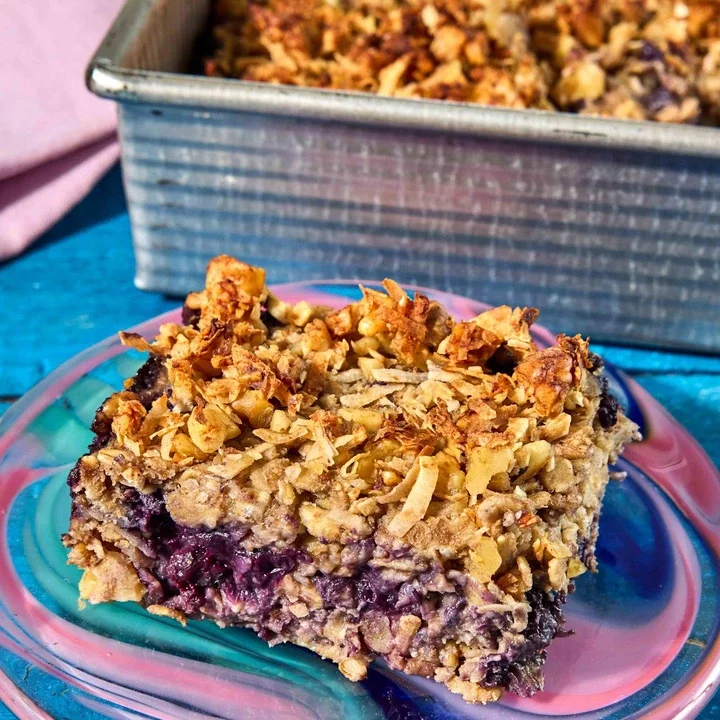
Scientists have made major breakthroughs in the search for optimal health and longevity. These include: getting good sleep could add years to life; 20 minutes of exercise can help avoid hospitalisation for diabetes, stroke, and other conditions; how 150 minutes of exercise weekly can help 'cure' non-alcoholic fatty liver disease; exercise more effective than medicines to manage mental health; and what to eat and not to eat to live longer.
Getting good sleep could add years to life
Getting good sleep can play a role in supporting your heart and overall health-and maybe even how long you live-according to new research presented at the American College of Cardiology's Yearly Scientific Session Together With the World Congress of Cardiology. The study found that young people who have more beneficial sleep habits are incrementally less likely to die early. Moreover, the data suggest that about eight per cent of deaths from any cause could be attributed to poor sleep patterns.
An internal medicine resident physician at Beth Israel Deaconess Medical Centre, clinical fellow in medicine at Harvard Medical School and co-author of the study, Dr. Frank Qian, said: "We saw a clear dose-response relationship, so the more beneficial factors someone has in terms of having higher quality of sleep, they also have a stepwise lowering of all cause and cardiovascular mortality.
"I think these findings emphasise that just getting enough hours of sleep isn't sufficient. You really have to have restful sleep and not have much trouble falling and staying asleep."
For their analysis, Qian and team included data from 172,321 people (average age 50 and 54 per cent women) who participated in the National Health Interview Survey between 2013 and 2018. This survey is fielded each year by the Centres for Disease Control and Prevention (CDC) and the National Center for Health Statistics to help gauge the health of the U.S. population and includes questions about sleep and sleep habits. Qian said this is the first study to his knowledge to use a nationally representative population to look at how several sleep behaviours, and not just sleep duration, might influence life expectancy.
Previous studies have shown that getting too little or too much sleep can negatively affect the heart. It's also been widely reported that sleep apnea, a sleep disorder that causes someone to pause or stop breathing while asleep, can lead to a number of heart conditions, including high blood pressure, atrial fibrillation and heart attacks.
20 minutes of exercise can help avoid hospitalisation for diabetes, stroke, and other conditions
A new study published in JAMA Network Open found that not only does physical activity decrease people's risk of developing health problems but it prevents them from being hospitalised as well.
Researchers evaluated the health data of over 81,000 patients between the ages of 42 to 78.
Physical activity can boost immune function, improve insulin sensitivity, and benefit heart and lung health.
New research has found that just 20 minutes of exercise a day can help keep people with a variety of health conditions out of the hospital.
It is well known that regular exercise is linked to a lower risk of cancer, diabetes, and heart disease, however, until this report, it's been unclear how exercise impacts the risk of common, less severe health conditions.
The study, which published in JAMA Network Open on Thursday, found that not only does physical activity decrease people's risk of developing health problems - like anemia and gallbladder disease - but it prevents them from being hospitalised for the conditions as well.
The research adds to the evidence that physical activity is associated with better health outcomes.
"This study provides additional insights about the association between physical activity and lower risk of hospitalisation for various conditions that are not typically linked with physical fitness, such as urinary tract infections, gallbladder disease, and pneumonia," says Dr. Jimmy Johannes, pulmonologist and critical care medicine specialist at MemorialCare Long Beach Medical Centre in Long Beach, CA.
To determine how regular exercise impacts the risk of hospitalisation for some of the most common health conditions, the researchers evaluated the health data of over 81,000 patients between the ages of 42 and 78.
Each participant received a wrist-worn activity tracker for a one-week period.
The team then analysed how physical activity impacted the participants' risk of developing a health issue and being hospitalised for it.
They found that, in general, the more people exercised, the lower their risk of developing common health conditions - like diabetes, pneumonia, ischemic stroke, gallbladder disease, iron-deficiency anemia, urinary tract infections (UTIs), colon polyps, venous thromboembolism, and diverticular disease - was.
Greater physical activity was also associated with a lower risk of being hospitalised.
Exercising 20 additional minutes each day was associated with a 3.8 per cent lower risk of being hospitalised for colon polyps, for example, and a 23 per cent lower risk of being hospitalised for diabetes.
According to the researchers, the findings suggest that exercising for at least 20 minutes a day may be an effective, non-pharmaceutical intervention for staying out of the hospital.
How 150 minutes of exercise weekly can help 'cure' non-alcoholic fatty liver disease
New research suggests that 150-300 minutes of exercise a week can help significantly reduce liver fat for those who are living with nonalcoholic fatty liver disease. It is recommended that adults should get between 150-300 minutes of exercise each week.
Previous research suggests this can help improve health in areas ranging from heart disease to quality of sleep.
New research suggests this can also help to significantly reduce liver fat for those who are living with nonalcoholic fatty liver disease (NAFLD).
The U.S. Department of Health and Human Services currently recommends adults should do at least 150 to 300 minutes of moderate to intense aerobic physical activity each week to best benefit their overall health and well-being.
This can pay great dividends for everything from heart health to the quality of one's sleep.
Now, new research out of Penn State reveals that adhering to these recommended guidelines can significantly reduce one's level of liver fat for those who have nonalcoholic fatty liver disease (NAFLD).
This is a condition where fatty tissue builds up in a person's liver even if they drink little to no alcohol throughout their lives. Serious forms of this condition can lead to cirrhosis.
Researchers behind the study say this work is important because it outlines a clearly defined amount of exercise one might need to achieve a significant improvement in fatty liver tissue.
It underscores yet another reason why incorporating just moderate amounts of exercise in your weekly routine can have a positive ripple effect on your overall health.
This new research was published in The American Journal of Gastroenterology. A meta-analysis of 14 previously published studies, this research looked at data on a total of 551 people surveyed who all had NAFLD and enrolled in randomised, controlled exercise interventions, according to a press release.
The data included a range of information from the participants in the various studies, taking into account their age, sex, body mass index, shifts in body weight over time, Magnetic Resonance Imaging (MRI)-measured liver fat, and their ability to keep up with the prescribed exercise regimen of the given study.
They discovered that exercise was 3.5 times more likely to result in greater than or equivalent to a 30 per cent relative reduction in MRI-measured liver fat levels compared to standard, non-exercise-centric treatment for NAFLD.

Exercise more effective than medicines to manage mental health[/b]
University of South Australia researchers are calling for exercise to be a mainstay approach for managing depression as a new study shows that physical activity is 1.5 times more effective than counselling or the leading medications.
Published in the British Journal of Sports Medicine, the review is the most comprehensive to date, encompassing 97 reviews, 1039 trials and 128,119 participants. It shows that physical activity is extremely beneficial for improving symptoms of depression, anxiety, and distress.
Specifically, the review showed that exercise interventions that were 12 weeks or shorter were most the effective at reducing mental health symptoms, highlighting the speed at which physical activity can make a change.
The largest benefits were seen among people with depression, pregnant and postpartum women, healthy individuals, and people diagnosed with Human Immuno-deficiency Virus (HIV) or kidney disease.
According to the World Health Organisation (WHO), one in every eight people worldwide (970 million people) lives with a mental disorder. Poor mental health costs the world economy approximately $2.5 trillion each year, a cost projected to rise to $6 trillion by 2030. In Australia, an estimated one in five people (aged 16-85) have experienced a mental disorder in the past 12 months.
Lead UniSA researcher, Dr. Ben Singh, said physical activity must be prioritised to better manage the growing cases of mental health conditions.
What to eat if one wants to live longer
•Dr. Mark Hyman, the man behind the pegan diet, on why it's never too late to transform your health
What you eat can increase your lifespan or shorten it; the science has never been clearer. Food isn't just calories and energy, it is both the cause and the cure for the signs of ageing.
"Food is not like medicine, it is medicine," said Dr. Mark Hyman, an American physician and author. "The right foods keep your gut healthy. The wrong foods wreak havoc."
Hyman is 63 and aiming to live to at least 100. In the course of his life so far, he's seen a shift from thinking that the sort of old age we thought was inevitable - afflicted by illnesses - is, in fact, abnormal ageing. "It is the result of myriad changes in our biology that are treatable," said Hyman.
He has developed the pegan diet, which combines the paleo diet (with a focus on whole foods such as fruits, meats and nuts) with the vegan diet (which consists of only plant-based foods).
With more than two million followers on Instagram, he is passionate about drawing attention to the damage that ultra-processed foods do to our bodies. He credits a low refined carbohydrate, higher-fat, high-fibre phytonutrient-rich diet for giving him better health today than he had 20 years ago.
And in his new book, Young Forever, he argues that it's never too late to transform your health by changing your diet. Through his clinic, the Centre for Functional Medicine in Cleveland, Ohio, he has seen the reversal of the devastating effects of modern food culture.
Take Katherine, a 66-year-old type 2 diabetic, severely obese and on course for a heart and kidney transplant. Three days after joining his clinic's programme, said Hyman, she was off insulin.
The cure was as simple as switching from a lifetime of junk food to using food as medicine; a very low-glycemic diet, high in fibre, good fats, phytonutrient and plant-rich. Within three months she was off all medication.
"Heart disease, cancer, dementia and diabetes are all largely manifestations of the same underlying changes in biology that occur with ageing and are highly influenced and modifiable by our lifestyle and environment washing over our genes."
However, by addressing the hallmarks of ageing, he says we can prevent, treat and even reverse most of the diseases without directly treating the disease itself. Inspired by the unusually high number of centenarians in so-called "Blue Zones" such as Sardinia, Ikaria and Okinawa, his belief is that we can all live healthier lives for longer.
The key is knowing what foods to eat and when. Hyman is a fan of time-restricted eating and a pegan approach. "If I had to choose between a steak and a bagel I would choose a steak every time." The former will help you build muscle, he says, the latter offers little nutritional benefit and will spike glucose levels.
While the diets in Blue Zones vary - some favour goat's milk, others seaweed - what they share is a similarity to those of our ancestors, whom our bodies evolved to support.
"Unfortunately our modern diet and lifestyle primarily drive the slow decay of our biology," said Hyman.
"Our bodies are designed both to clean up and repair old cells and proteins and to build new molecules, cells and tissues. The problem with ageing is imbalance; too much decay and not enough rebuilding."
There are 10 hallmarks of ageing; changes in our biology that are upstream from the diseases they cause. These range from cell senescence (deterioration) and stem cell exhaustion to telomere (sections of DNA at the end of each chromosome) shortening, and disrupted hormone and nutrient signalling. "Our diet plays a part in all of these processes," said Hyman.
When it comes to keeping our hormone and nutrient signalling firing on all cylinders, there are four key systems that work together: insulin and insulin signalling, something called mammalian target of rapamycin (mTOR), AMP-activated protein kinase (AMPK) and sirtuins.
"They are designed to beautifully protect us from disease and abnormal ageing," explained Hyman. But it is food that is the master controller of these longevity pathways.
"If I were to prescribe one intervention to extend life, to prevent and reverse chronic disease, it would be to dramatically reduce or eliminate sugar and refined starch from your diet," said Hyman.
"The flood of sugar and starch drives your pancreas to produce more and more insulin to keep blood sugar under control. They also adversely affect all the longevity switches including mTOR and sirtuin pathways."
The most important thing you can do for healthy ageing is to balance your blood sugar and keep your insulin levels low and your cells insulin sensitive.

The best way to keep your insulin levels low and your cells insulin sensitive is by eating a low-sugar, low-starch diet with plenty of good-quality fats and protein, "and a boatload of phytochemical and fibre-rich fruit and vegetables", added Hyman.
Important for regulating cell growth, protein synthesis, mitochondrial function, cell senescence (programmed cell death) and more, mTOR is a longevity switch that sometimes we want on (such as when we are exercising so that we can build muscle and create new proteins) and sometimes off (to enhance autophagy, the clearance of old cells).
Without regular periods of autophagy, diseases such as Alzheimer's, obesity, cancer, Parkinson's, polycystic ovary syndrome and fatty liver disease, take hold.
It's a fine balance, though. "Periods of fasting or calorie restriction silences mTOR and activates autophagy," explained Hyman. "While periods of high-quality protein activate it to build more muscle." Meanwhile, "over-activating mTOR with too much sugar and starch can cause cancer."
The key is to give your body a break from the constant influx of calories on a regular basis. Certain phytonutrients can activate autophagy too: polyphenols in coffee, oleuropein in extra virgin olive oil, resveratrol in red grape skins, catechins in green tea, turmeric, berberine and a gut metabolite from phytochemicals in pomegranate called urolithin A.
AMPK is a critical enzyme found in every mammalian cell. Their roles are to sense low levels of energy in the body and activate the enzyme ATP (adenosine triphosphate) to do its work. "As we age, AMPK becomes less sensitive, which leads to low levels of energy and nutrients, leading to a slower metabolism," said Hyman.
Time-restricted eating can help activate AMPK and some plant compounds such as areca nut, saffron, Artemisia, aloe, ginseng, hot peppers, black cumin seeds, tangerines, chlorogenic acid in coffee, and capsaicin from peppers.
Sirtuins are a family of signalling proteins that regulate the making of new proteins, lower inflammation and oxidative stress. They are essential for fixing DNA damage and protecting our telomeres, however their activity decreases as we age.

Resveratrol found in red wine activates the sirtuin pathway, "but it would have to be the equivalent of 1,500 bottles of red wine", said Hyman. Other beneficial compounds are compounds found in berries, onions, turmeric, green tea and cruciferous vegetables.
Much like all the other longevity pathways, a high sugar and starch diet will inhibit their function. "A fizzy drink or bagel is the best way to turn off their benefits," added Hyman.
Muscle loss and bone loss are huge factors in ageing and age-related diseases. Having a low muscle mass slows the metabolism and worse. "Poor-quality muscles marbled with fat lead to diabetes, inflammation and ageing," said Hyman.
"High-quality protein combined with strength training is imperative if we want to stay agile, strong and active well over 100 years old."
While protein intake is key to maintaining muscle mass, it has become a contentious subject. Hyman is clear though that while the body makes most of its important molecules from protein, not all protein is the same.
"Animal proteins build muscles best. Plant protein is not the same and doesn't have as many of the essential amino acids that your body needs to create new muscle, especially the branched-chain amino acids such as leucine, isoleucine, valine, lysine and sulphur-based amino acids."
Cells that don't quite die but stay in the body causing damage are known as zombie cells. As we age, the immune system functioning wanes and inflammation drives the formation of more zombie cells.
Natural compounds such as quercetin, in apples and onions, have been found to help. Other foods with helpful compounds include strawberries, carrots, broccoli, artichokes, cabbages, grapes, broccoli, citrus fruits, cherries and turmeric.
Mitochondria are tiny ancient organelles that combine food and oxygen to produce energy that runs everything in our body. As we age, mitochondrial DNA mutations accumulate; free radicals increase and mitochondria drop in number and function, especially as we lose muscle. "Hence the decline in energy."
Hyman compares mitochondria to a hybrid engine that can run on two fuel sources: fat and carbohydrates. One is cleaner than the other, however, said Hyman. "Most of us run on dirty, inefficient carbs, rather than clean-burning fats."
Ketones, a type of fat, and MCT oil (found in unrefined coconut oil) are the preferred fuel to help mitochondria repair and renew. Bad fats include trans fats and oxidised oils (especially from deep-frying).
To produce energy, your mitochondria also need specific nutrients: foods such as blueberries, pomegranate seeds, grass-fed beef, broccoli, sardines, extra virgin olive oil, avocados and almonds are "great sources of fat that supercharge your mitochondria," said Hyman.















Comments